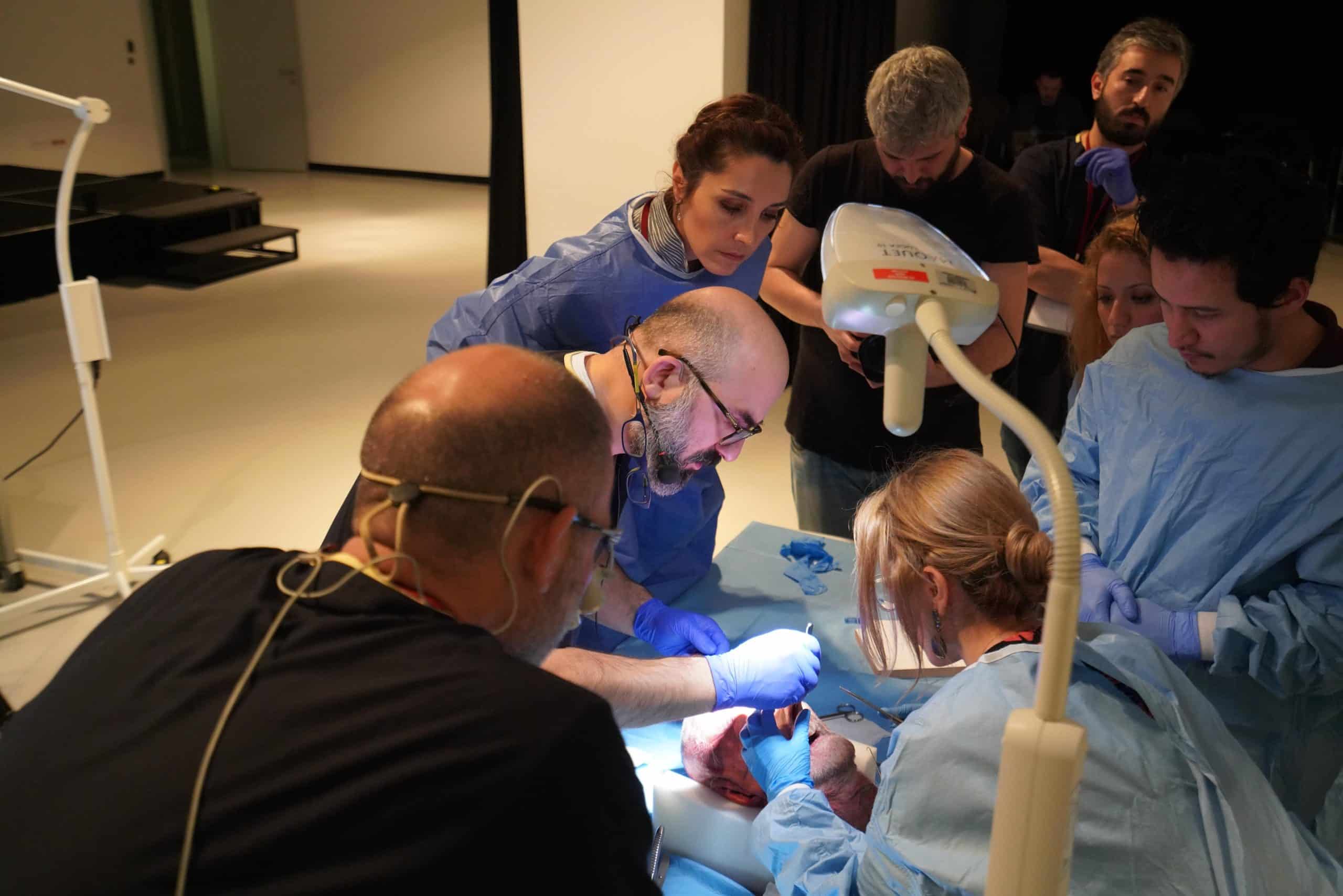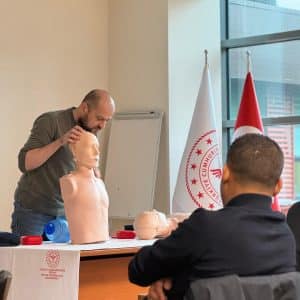
19 Aug Medical Training in Turkey: Cadaver Courses
### Elevating Medical Expertise with Hands-On Learning
Turkey is emerging as a leading destination for advanced medical training, attracting healthcare professionals from around the globe. A cornerstone of this advanced training is the cadaver courses offered in major cities like Istanbul and Ankara. These courses provide an unparalleled opportunity for medical professionals to refine their skills through hands-on experience with real human bodies.
### The Importance of Cadaver Courses
Cadaver courses are essential in medical education for several reasons:
– **Enhanced Anatomical Understanding:** Working with cadavers allows for a deeper and more accurate understanding of human anatomy.
– **Practical Skills Development:** These courses provide a realistic platform to practice and perfect surgical techniques and procedures.
– **Learning from Experts:** Participants benefit from the guidance and knowledge of seasoned medical professionals and surgeons.
### Medical Training in Istanbul
Istanbul, a city that blends rich history with modern innovation, is a prime location for advanced medical training. Cadaver courses in Istanbul are held in top-tier medical institutions, featuring:
– **Comprehensive Programs:** Covering a wide range of medical specialties, including orthopedics, neurosurgery, and general surgery.
– **Cultural Enrichment:** The vibrant cultural landscape of Istanbul enhances the educational experience, offering both professional and personal growth.
### Medical Training in Ankara
Ankara, the capital city of Turkey, is renowned for its prestigious medical schools and research centers. Cadaver courses in Ankara are distinguished by:
– **Rigorous Training:** Intensive courses that cater to both novice and experienced practitioners, ensuring thorough skill development.
– **Professional Networking:** Opportunities to connect with leading experts and fellow professionals, fostering a collaborative learning environment.
### Enrollment and Course Details
Enrollment for cadaver courses in Turkey is highly sought after due to the quality and depth of training provided. To participate:
– **Application Submission:** Candidates must submit a detailed application highlighting their medical background and areas of interest.
– **Prerequisites:** Ensure that you meet the necessary prerequisites for the chosen course.
– **Early Registration:** Due to high demand, it is advisable to register well in advance.
For detailed information on course dates, fees, and the application process, please visit our [website](#).
CONTACT US
For further inquiries, please contact our administrative offices:
Office: +90 532 737 4877 | cenkozdil@comedturkey.com
Join us in Istanbul or Ankara to take your medical expertise to the next level with our comprehensive cadaver courses. Experience the difference in your practice and patient outcomes.

BLS COURSE TURKEY – AHA CERTIFICATION
Sure, here is a detailed description of a Basic Life Support (BLS) course in English:
—
### Basic Life Support (BLS) Course Description
**Course Overview:**
The Basic Life Support (BLS) course is designed to provide healthcare professionals and interested individuals with the essential skills needed to respond to life-threatening emergencies. The course focuses on the recognition of several life-threatening emergencies, providing high-quality chest compressions, delivering appropriate ventilations, and using an Automated External Defibrillator (AED).
**Course Objectives:**
Upon completion of the BLS course, participants will be able to:
– Recognize the signs of someone needing CPR.
– Perform high-quality CPR for adults, children, and infants.
– Understand the importance of early use of an AED.
– Demonstrate the use of an AED.
– Provide effective ventilations using a barrier device.
– Understand the importance of teams in multi-rescuer resuscitation.
– Perform as an effective team member during multi-rescuer CPR.
– Relieve choking in a safe, timely, and effective manner.
**Course Content:**
1. **Introduction to BLS:**
– Importance of BLS in emergency care.
– Overview of the course structure.
2. **CPR and AED Use:**
– Adult CPR and AED.
– Child CPR and AED.
– Infant CPR.
– Two-rescuer CPR and AED.
3. **Bag-Mask Techniques:**
– Effective use of a bag-mask device.
– Proper ventilation techniques.
4. **Team Dynamics:**
– Roles and responsibilities during a resuscitation attempt.
– Effective communication and teamwork.
5. **Relief of Choking:**
– Techniques to relieve choking in adults, children, and infants.
**Course Format:**
The BLS course is delivered through a combination of:
– Video-based instruction to provide a realistic simulation of actual emergencies.
– Hands-on practice sessions to enhance skill retention and proficiency.
– Instructor-led discussions to clarify concepts and answer questions.
**Assessment and Certification:**
Participants will be assessed through:
– Practical skills demonstrations.
– A written exam to test knowledge and understanding.
Upon successful completion of the course, participants will receive a BLS certification card, valid for two years.
**Target Audience:**
This course is ideal for healthcare professionals, including doctors, nurses, paramedics, and other emergency responders. It is also suitable for anyone interested in learning essential life-saving skills.
**Duration:**
The BLS course typically lasts 4-5 hours, depending on the number of participants and their proficiency.
**Prerequisites:**
No prior medical knowledge or experience is required. A willingness to learn and a commitment to performing life-saving procedures are essential.
—
This comprehensive description should give potential participants a clear understanding of what to expect from a Basic Life Support course.
ACLS COURSE TURKEY – AHA CERTIFICATION
Certainly! Here is a detailed description of an Advanced Cardiac Life Support (ACLS) course in English:
—
### Advanced Cardiac Life Support (ACLS) Course Description
**Course Overview:**
The Advanced Cardiac Life Support (ACLS) course is an advanced training program designed for healthcare professionals who manage cardiovascular emergencies. The course builds on the foundational skills of Basic Life Support (BLS), emphasizing advanced interventions, effective team dynamics, and critical decision-making during cardiac and respiratory emergencies.
**Course Objectives:**
Upon completion of the ACLS course, participants will be able to:
– Recognize and initiate early management of peri-arrest conditions.
– Perform high-quality CPR and integrate advanced airway management.
– Implement early defibrillation with AED and manual defibrillators.
– Manage acute coronary syndromes and stroke.
– Understand and apply ACLS algorithms for treatment of cardiac arrest and other cardiovascular emergencies.
– Use effective communication and team dynamics during resuscitation.
– Apply pharmacological principles in the treatment of cardiovascular emergencies.
**Course Content:**
1. **Introduction to ACLS:**
– Overview of ACLS and its importance in advanced emergency care.
– Review of BLS principles and their integration into ACLS.
2. **Advanced Airway Management:**
– Techniques for advanced airway insertion and management.
– Ventilation strategies and troubleshooting.
3. **Cardiac Arrest Management:**
– ACLS algorithms for various types of cardiac arrest (e.g., VF/pulseless VT, asystole, PEA).
– High-performance team CPR.
4. **Arrhythmia Recognition and Management:**
– Identification and treatment of bradycardia, tachycardia, and other arrhythmias.
– Use of electrical therapies (defibrillation, cardioversion, pacing).
5. **Acute Coronary Syndromes (ACS):**
– Recognition and initial management of ACS.
– Pharmacologic treatment and reperfusion strategies.
6. **Stroke Management:**
– Identification of stroke symptoms and rapid assessment.
– Early management and treatment protocols for stroke.
7. **Pharmacology in ACLS:**
– Drugs used in ACLS, including indications, dosages, and administration routes.
– Pharmacokinetics and dynamics relevant to emergency cardiac care.
8. **Effective Team Dynamics:**
– Roles and responsibilities within a resuscitation team.
– Leadership and communication skills to enhance team performance.
9. **Post-Cardiac Arrest Care:**
– Strategies for optimizing post-resuscitation outcomes.
– Therapeutic hypothermia and hemodynamic support.
**Course Format:**
The ACLS course is delivered through a combination of:
– Instructor-led lectures and discussions to explain theoretical concepts.
– Video-based instruction for visual learning and scenario simulations.
– Hands-on practice stations to develop proficiency in ACLS skills.
– Interactive case-based scenarios to apply knowledge in simulated emergencies.
**Assessment and Certification:**
Participants will be assessed through:
– Practical skills evaluations to demonstrate competence in ACLS procedures.
– A written exam to test knowledge and understanding of ACLS protocols.
Upon successful completion of the course, participants will receive an ACLS certification card, valid for two years.
**Target Audience:**
This course is ideal for healthcare professionals who may respond to cardiovascular emergencies, including doctors, nurses, paramedics, and other advanced providers involved in emergency and critical care.
**Duration:**
The ACLS course typically lasts 2 days, but the duration may vary based on the number of participants and their prior experience.
**Prerequisites:**
Participants should have a current BLS certification and a basic understanding of ECG interpretation and pharmacology. Prior experience in emergency or critical care is beneficial but not mandatory.
—
This detailed course description provides a comprehensive overview of what participants can expect from an Advanced Cardiac Life Support course, highlighting the key skills and knowledge areas covered.

